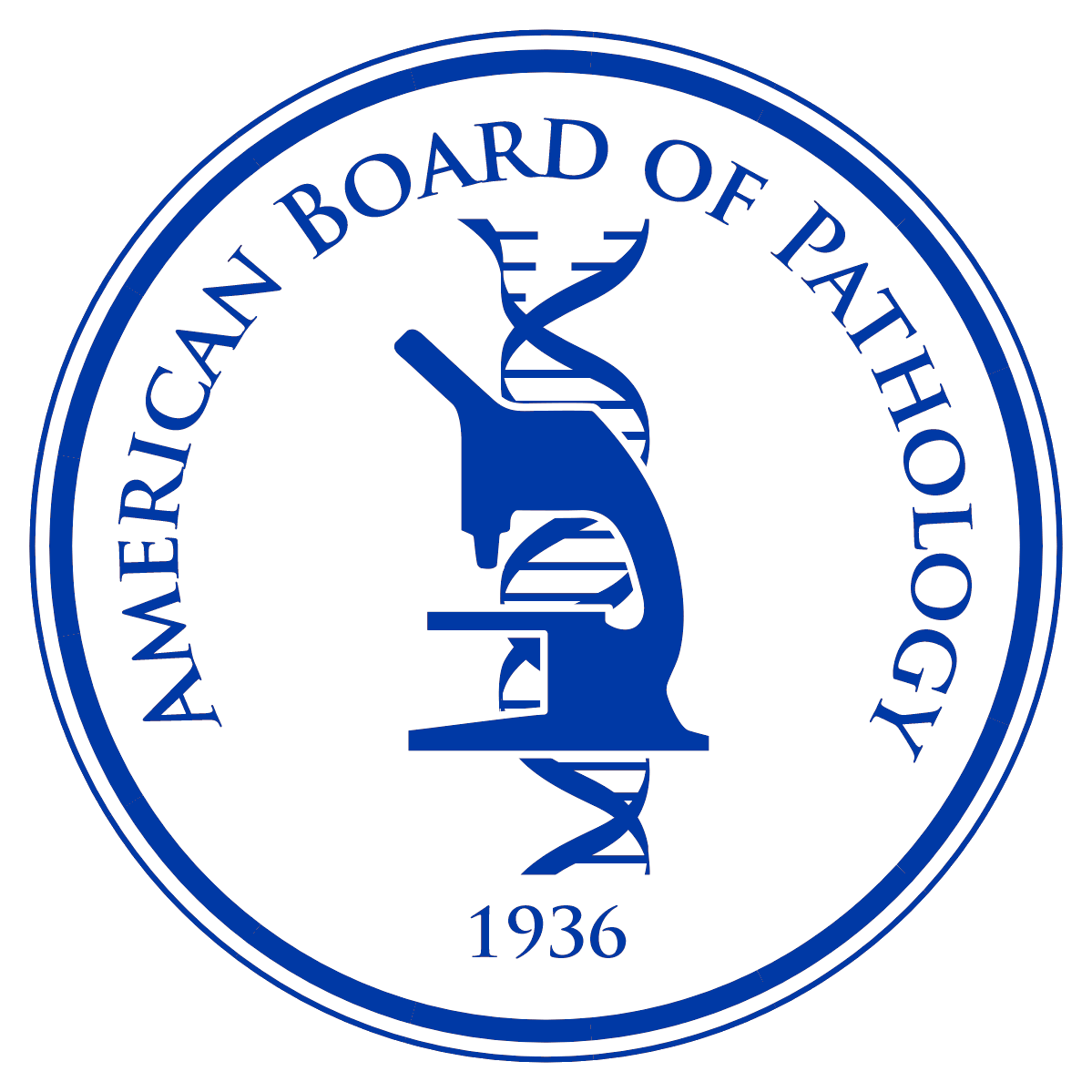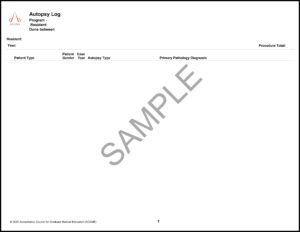Requirements for Certification

Undergraduate Medical Education (UME)
UME Requirement
Applicants for certification by the ABPath must have graduated from one of the following.
- A medical school in the United States or Canada accredited by the Liaison Committee on Medical Education.
- An osteopathic college of medicine accredited by the American Osteopathic Association.
- A medical school outside the United States or Canada acceptable to the ABPath.
UME Documents Required with Application
Medical School Diploma
Applicants must upload a copy of their medical school diploma (along with an English translation if issued outside the United States in a language other than English), showing the medical degree and the date that it was awarded.
If a copy is not available, graduates of United States or Canadian medical schools may upload a letter from the Dean’s office of their medical school certifying that they graduated from medical school, stating the medical degree and the date that it was awarded. A certificate showing that the applicant has passed a final examination is not acceptable.
Medical Licensure
There are no exceptions to the licensure requirements.
- Applicants must possess or have applied for a full and unrestricted license in a state or jurisdiction of the United States or Canada that will be valid at the time examination results are released.
- Canadian applicants must have taken and passed the Licentiate of the Medical Council of Canada (LMCC) and RCPSC examinations and obtained the appropriate licensure in a Canadian province or obtained a full and unrestricted license in the United States.
- An institutional, training, or temporary license is not acceptable.
- If the applicant has applied for, but not yet received a medical license, he/she may upload a copy of a letter or email received from the medical licensing board stating they are in receipt of the application for licensure and documentation of successful completion of USMLE Step 3 or other examination required by the licensing authority.
- Applicants who upload the required information will be allowed to sit for the examination, but their results will not be released until evidence of licensure is uploaded to the applicant’s My Profile in his/her PATHway. If evidence of licensure is not uploaded within 2 years from the date of the examination, the examination results will be declared null and void.
Autopsy Requirements
- The applicant must have completed a minimum of 30 autopsies by the time the application for certification is submitted.
- ACGME trained residents must upload a copy of the completed ACGME Autopsy Log.
- The ACGME autopsy log is located on the ACGME website under “Specialty Specific Reports.” The log includes age group, gender, primary diagnosis (as would be reported on a death certificate) and PGY year the autopsy was performed.
- Do not include any identifying information on the log (e.g. case#, medical record#), this would be a violation of HIPPA. The ACGME autopsy log will look like the sample log below:
RCPSC trained residents only- Select the link below to access the ABPath RCPSC autopsy form.
Autopsy Submission Form – RCPSC trained residents only
Primary/Subspecialty Training Requirements
- Applicants must have successfully completed a graduate medical education program in pathology or a pathology subspecialty accredited by the Accreditation Council for Graduate Medical Education (ACGME) or a primary pathology program accredited by the Royal College of Physicians and Surgeons of Canada (RCPSC).
- Only pathology training obtained in the United States or Canada is acceptable toward meeting the ABPath requirements.
- The ABPath does not accept Canadian subspecialty training. Canadian pathologists who are certified by the RCPSC in AP and NP (separate certificates) may apply for combined AP/NP or NP subspecialty certification.
Subspecialty Certification Only
- Candidates must have current primary or subspecialty certification from the ABPath or another ABMS Board. Applicants may apply to take a subspecialty examination but will not be declared a qualified/eligible candidate and not allowed to sit for the exam until primary certification is achieved.
- Candidates with time-limited certification must be participating in the Continuing Certification (CC) Program and remain up to date with all CC reporting requirements.
- Applicants may not use training to qualify for subspecialty certification if all or part of that training was used to meet the training requirements for primary certification.
- Residents must complete at least 2 years of training in AP/CP, AP, or CP before beginning subspecialty fellowship training, except for Dermatopathology, for which completion of all primary certification training requirements is required prior to the fellowship.
See the Booklet of Information for complete information on the requirements.


